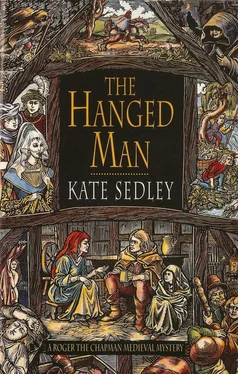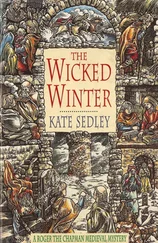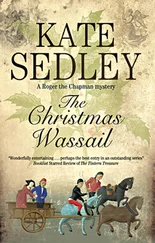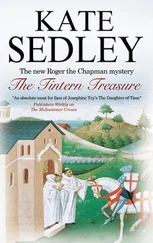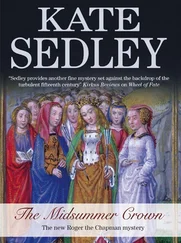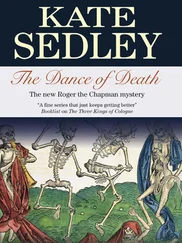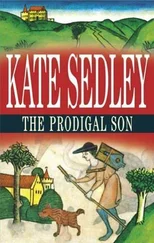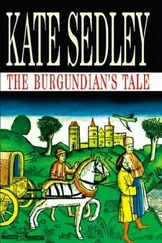Kate Sedley - The Hanged Man
Здесь есть возможность читать онлайн «Kate Sedley - The Hanged Man» весь текст электронной книги совершенно бесплатно (целиком полную версию без сокращений). В некоторых случаях можно слушать аудио, скачать через торрент в формате fb2 и присутствует краткое содержание. Год выпуска: 1993, ISBN: 1993, Издательство: Headline, Жанр: Исторический детектив, на английском языке. Описание произведения, (предисловие) а так же отзывы посетителей доступны на портале библиотеки ЛибКат.
- Название:The Hanged Man
- Автор:
- Издательство:Headline
- Жанр:
- Год:1993
- ISBN:9780708932827
- Рейтинг книги:5 / 5. Голосов: 1
-
Избранное:Добавить в избранное
- Отзывы:
-
Ваша оценка:
- 100
- 1
- 2
- 3
- 4
- 5
The Hanged Man: краткое содержание, описание и аннотация
Предлагаем к чтению аннотацию, описание, краткое содержание или предисловие (зависит от того, что написал сам автор книги «The Hanged Man»). Если вы не нашли необходимую информацию о книге — напишите в комментариях, мы постараемся отыскать её.
The Hanged Man — читать онлайн бесплатно полную книгу (весь текст) целиком
Ниже представлен текст книги, разбитый по страницам. Система сохранения места последней прочитанной страницы, позволяет с удобством читать онлайн бесплатно книгу «The Hanged Man», без необходимости каждый раз заново искать на чём Вы остановились. Поставьте закладку, и сможете в любой момент перейти на страницу, на которой закончили чтение.
Интервал:
Закладка:
Kate Sedley
The Hanged Man
Chapter One
It was a cold winter's day when I first met Lilis and her mother, Margaret Walker. Christmas of 1473 had come and gone. The Lord of Misrule had put aside his cap and bells for another year and the Boy Bishops had doffed their borrowed mitres. Although already January, traces of the previous month's snow were still to be found in sheltered places. The Earl of Oxford continued to be holed up on St Michael's Mount, slowly being starved into submission by the Cornish sheriff and his men and the Vigilant captains of the royal fleet. Whenever and wherever possible, people stayed warm and snug within doors to avoid the icy winds and the stinging rain which had made life miserable for the past few days.
As I wove my unsteady course along the deserted market-place, the great bulk of Bristol castle towered ahead of me, the donjon rearing its ugly face to peer malevolently across the intervening inner ward, which in its turn was rimmed by high, grim walls. My pack weighed with unaccustomed heaviness on my back, and my legs felt as though they were made of lead. In contrast, my head was so light it might have been stuffed with feathers, like the goose-feather mattress my mother had owned and been so proud of. My forehead burned to the touch, yet my hands and feet were cold as stone.
I think it would be no idle boast to say that I have enjoyed almost unfailing good health throughout my life, at least until recent years. I have always been strong and able, but that means that on those rare occasions when illness strikes, it lays me extremely low. The ague which had me in its grip that day had taken hold a sennight earlier. I had been making my way westward after a profitable autumn and early winter peddling my wares among the villagers and hamlet-dwellers around Southampton. The pleasant sun-dappled days of late October had given way to an unusually warm November, engendering a feeling of contentment and well-being. This was augmented by the recollection of my recent trip to Brittany, and the satisfaction of knowing that I had successfully discharged the obligations thrust upon me by the Duke of Gloucester. But that's another story. Suffice it to say that the sudden fall of snow and icy rains which struck that Christmas in the south, found me ill-prepared to withstand their violent blast. Within a week of Our Saviour's birthday, I awoke one morning in the outlying barn of a manor somewhere north of Salisbury, to find myself shaking and sweating with a fever, and my night's companion bending over me, his face puckered with concern. He was a Carmelite friar who, caught by the previous evening's storm, had been deterred from seeking better accommodation, and who had shared both my humble shelter and my supper. Fortunately my appetite had been small, a circumstance which in itself should have warned me that all was not well.
'You're ill, my son,' he had said, feeling my brow with a calloused hand.
'Nonsense!' I retorted. 'I'm never ill. This seizure will pass. I must be on my way as soon as I have broken my fast.'
He regarded me dubiously, crouched on his haunches at my feet, his white habit mud-splattered to the knees by filth from the roads, wisps of hay from his makeshift bed still stuck in his hair.
'I doubt you're fit enough to travel but, if you must, then make for your winter quarters as soon as maybe.' With a great effort, I controlled my trembling limbs. 'I have no winter quarters.'
The bushy eyebrows came together in a frown. 'You mean you travel the roads in all seasons?' When I nodded, he threw up his hands in astonishment. 'But that's madness! I've never met a traveller of any sort who did not have some base for winter months. A snug billet with wife or mother or leman where he can lie up during the cold and wet and live on the summer's profits. And in your line of business, you can always take advantage of more clement days to sally forth into the surrounding countryside and make a little extra money by selling your goods among neighbouring communities.' He patted my arm in avuncular fashion. 'Heed my advice, my son, and go home to your mother.'
'She's dead,' I answered shortly.
'You must have other kin who will house you during the winter.'
I shook my head, but stopped abruptly when I found it made my senses reel. 'There's no one.'
The friar was not to be so easily defeated. 'Friends?' he suggested. 'Your parish priest? Tell me where you were born, lad.'
'Wells. My father was a stone-carver in the cathedral.'
'Then surely you must have some acquaintances in the city. Can you think of no one who would be willing to offer you lodgings in return for payment?' He added, sinking his voice to a lower level, 'The best thing you can do, my. son, is marry. Find yourself a good woman who will make a home for you to go back to every winter, and who will maintain it while you are away each summer.' He dug me slyly in my aching fibs. 'It seems to me the perfect life, much to be envied, and I wonder you have not thought of it for yourself. The comfort of your own hearth on the one hand and the freedom of being your own man on the other. A wife to cosset and fuss over you when the wind and rain rattle the shutters, but all the world your oyster when sun and gentle breezes make you restless and fancy-tree.'
Only half of what he said penetrated my befuddled senses at the time, although! was later to find that I could recall all of this unclerical advice almost word for word.
But the idea that I should make for home did stick in my mind long after the friar had taken his leave and gone; an idea which suddenly seemed eminently desirable. He was right: there must still be people who remembered me in Wells and who had borne a kindness towards my mother. And some goodwife would be thankful for a little extra money until better weather once again made living easier in the spring.
From where I was, Wells lay in a north-westerly direction, along well-trodden paths and tracks across country, at least twenty miles south of Bristol. How I came to go so far astray could be attributed to the fall of snow, which had obliterated so many familiar landmarks, and to my feverish condition which steadily worsened with each passing day. Both plausible reasons and few sensible men would dispute them. But I am not so sure. I suspect that God had taken a hand and was bending me to His Will, forcing me yet again to be the instrument of His Divine Purpose; using my talent for unravelling mysteries to prevent villainy from going undetected. Why else should I have fallen sick at that particular moment? Why should the friar have suggested I go home? And why should I have missed my way, ending up a score or so miles further north, in Bristol? If my children ever read this they will smile indulgently, pitying an old man's fancies; and indeed I am half inclined to mock myself. But the suspicion lingers; and a lifetime of fighting and arguing and trying to outwit God, all to no avail, only increases my conviction. For the fact remains that some nine months after Robert Herepath was hanged for a murder he did not commit, I staggered into Bristol and straight into the very heart of a mystery.
I turned right, making my way beneath the shelter of the castle walls, over the bridge spanning the Frome, past the weir and castle mill and along the banks of the river in the direction of the Pithay Gate. Through thick drizzle, I could just see the outlines of the Dominican friary which stands in the broad meadows beyond the city. The afternoon was drawing to a close and darkness already encroaching. Someone had lit cressets on one of the friary outbuildings to guide travellers on their way and ensure that they did not miss their footing, ending up in the muddy waters of the Frome. The gatekeeper at the Pithay Bridge was cold and growing churlish. He plainly wanted to lock up for the night, and return to his family and the warmth of his house, but it lacked some time to curfew.
Читать дальшеИнтервал:
Закладка:
Похожие книги на «The Hanged Man»
Представляем Вашему вниманию похожие книги на «The Hanged Man» списком для выбора. Мы отобрали схожую по названию и смыслу литературу в надежде предоставить читателям больше вариантов отыскать новые, интересные, ещё непрочитанные произведения.
Обсуждение, отзывы о книге «The Hanged Man» и просто собственные мнения читателей. Оставьте ваши комментарии, напишите, что Вы думаете о произведении, его смысле или главных героях. Укажите что конкретно понравилось, а что нет, и почему Вы так считаете.
